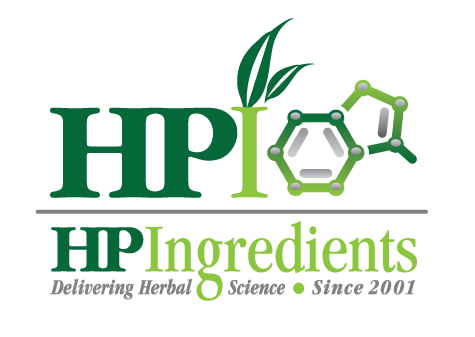April is National Stress Awareness Month – but we staunchly believe that awareness of stress and how it impacts health should be continually at the forefront of your mind.
Stress is not just pressure from work – it includes a veritable constellation of characteristics, and thus, imposes a nearly countless number of symptoms, conditions and risks for chronic and acute diseases.
Further, even “good” stress – getting married, closing on a new house and moving, retirement, starting the new dream job – is still perceived by the body as stress.
Stress is so pervasive – and so indiscriminate (even little children often get stressed out), that the Health Resource Network, a non-profit health education organization, created Stress Awareness Month in April to educate people about the dangers of stress and provide appropriate coping strategies.
Stress isn’t just a feeling of anxiety and hyper energy or the inability to focus because your mind is preoccupied with a fearful thought or looming event.
According to Stress Management Society, stress is mostly a physical response and our ancestors used it in a positive way; it helped for survival. Stress is primarily characterized by the “fight or flight” response, a biochemical pathway in response to a perceived threat. In those stone-age days, the perceived threats were primarily from animal predators, and depending upon the situation, the ancestor ran away (“flight”) or enjoyed some meals in his or her foreseeable future “fight.”
Today, of course, as societies have emerged and evolved, stress is now created through as many if not more mental and emotional issues than physical. This is what happens, according to the Stress Management Society; when the stressor is perceived and the fight or flight mode kicks in, this releases hormones such as adrenaline (known as epinephrine), cortisol and norepinephrine that work to stimulate numerous reactions such as increased heart rate, to diverting blood from unnecessarily function such as digestion (why many people lose their appetite when stressed).
When stress goes “bad,” it’s because the body goes into the fight-or-flight mode in situations that are not necessary to incur that response. Acute stress every now and then (such as having to slam on the brakes because another driver was texting and drifting into your lane) isn’t damaging for the long-term. When bouts of acute stress events become consistent, or your situation is such (illness recovery, can’t leave a hated job yet), it become chronic, then you may develop unhealthy effects of the excessive levels of hormones that continually course through your system. For example, continually high levels of cortisol will cause an increase in blood pressure and elevate blood sugar as well.
According to Stress Management Society, stress affects four domains, causing the following symptoms:
Cognitive: brain grogginess, indecisiveness, loss of focus/concentration, poor judgment and memory issues.
Emotional: panic/anxiety, feeling overwhelmed, moodiness, fatalistic thinking, cynicism/negative thinking, depression and irritability.
Physical: tachycardia (rapid heartbeat), tightness in chest/restricted breathing, indigestion, loss of appetite, nausea, hives, and an increase in colds. In addition, some disorders such as psoriasis are triggered by stress.
Behavioral: loss of humor, loss of motivation, sleeping too much or insomnia, self-isolation, increase in poor health coping habits such as smoking, drinking or overeating.
A stress profile is unique to the individual. And stress is a part of life. There are things under your control that can help you reduce stressors as well as lessen the impact of stress when you do encounter stressors great and small.
The obvious is do not give into the bad health habits; they may feel good when you do them but cause more damage. Take a critical look at your life – and identify stressors. Once identified chart a course to remove them or lessen them. For example: a stressor may be environmental, such as being allergic to certain products. Cut out those products. If a major family issue is giving you stress, talk it out, refuse to be in the middle, and be on the bleachers instead of on the field.
Deep breathing exercises have come to the forefront as being exceptional in relieving stress and balancing biochemicals. Experts at the Cleveland Clinic write, “learning how to activate our bodies’ relaxation response can help counteract the potentially harmful effects of the fight-or-flight response.”
Inhaling as much as possible, slowly, holding it for a count of 8 to 10, then releasing that breath slowly and repeating is deep breathing. And it has numerous immediate benefits – the tension and chest tightness relaxes, your blood pressure stabilizes and even may lower, your muscles relax, you feel an increase in healthy energy and ability to focus. Best of all, this is something you can do anywhere, at any time as often as you wish. For many people, it has become a habit when they know a stressor is in their midst.
Of course diet and supplementation help combat the demolition crew that stressors create. Supplements that help the immune system balance and function optimally dramatically help support against the ravages of stress. Any physician or healthcare expert will tell you that stress weakens your immune system, so you want supplements to help combat that reaction.
LJ100®, a unique patented extract of Tonkgat Ali (Eurycoma longifolia), is a potent ally for the immune system. LJ100’s distinctive ability to modulate immunity was studied in a middle-aged Japanese population. In the study 81 participants with lower Scoring of Immunological Vigor (SIV) scores, took 200 mg/day of LJ100® or placebo for four weeks. At week 4, the SIV and immunological grade were significantly higher in the LJ100® group than those in the placebo group. The numbers of total, naïve, and CD4+ T cells were also higher in the LJ100® group than those in the placebo group. The results suggest that ingestion of LJ100® enhances comprehensive immunity in both middle-aged men and women. (George, et al. Food & Nutrition Research 2018, 62: 1374).
So, what does this mean? LJ100 is a botanical, sustainably sourced, that stimulates the immune system to produce compounds that more aggressively fight invaders and maintain its vigilance – this is what you need when you become stressed out so that you don’t get sick or increase risk of debilitating health conditions.
So take this month to learn about yourself – with the goal of identifying your stressors, and working to lessen or eliminate them.


